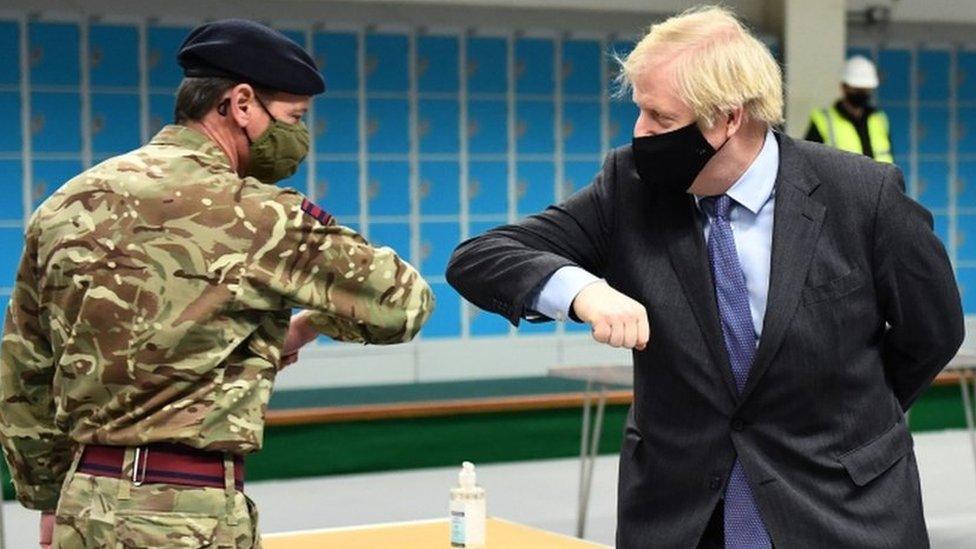Covid in Scotland: PM 'not aware' of cases ahead of vaccine factory tour
- Published
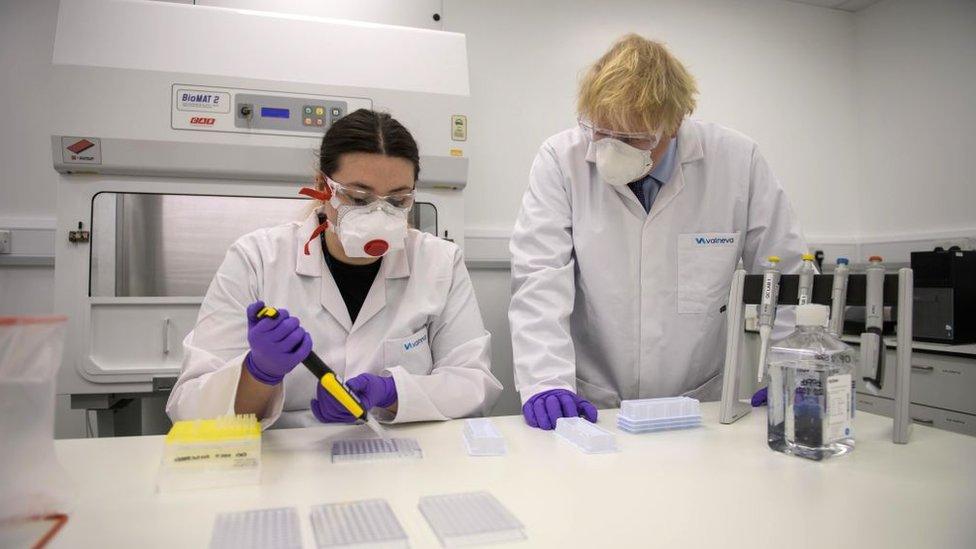
Boris Johnson visited the Valneva site in Livingston last Thursday
Boris Johnson has said he was not aware of a Covid outbreak at a vaccine factory ahead of his visit last week.
The prime minister toured the Valneva vaccine factory in Livingston as part of a trip to Scotland.
The company has now said that a number of coronavirus cases had been reported among staff at the site earlier in January.
But Valneva has insisted that Mr Johnson's tour of the factory last Thursday was "Covid secure".
Mr Johnson told the House of Commons that "nobody raised that issue with me before or since".
But Downing Street later admitted it had been told in advance of the visit.
The prime minister's official spokesman said: "Valneva made us aware that some Covid cases had been reported and they had brought in some Covid secure procedures.
"The site director has said if there had been any risk they would not have allowed the visit to go ahead."
Mr Johnson said it was his job to visit every part of the country and "nothing or no one is going to stop me".
And he said there are "few things more important" than the vaccination programme and recognising the work of the scientists involved.
His visit to Scotland had already proved controversial, with First Minister Nicola Sturgeon questioning at the time whether it was genuinely "essential" for the prime minister to travel during the current lockdown restrictions.
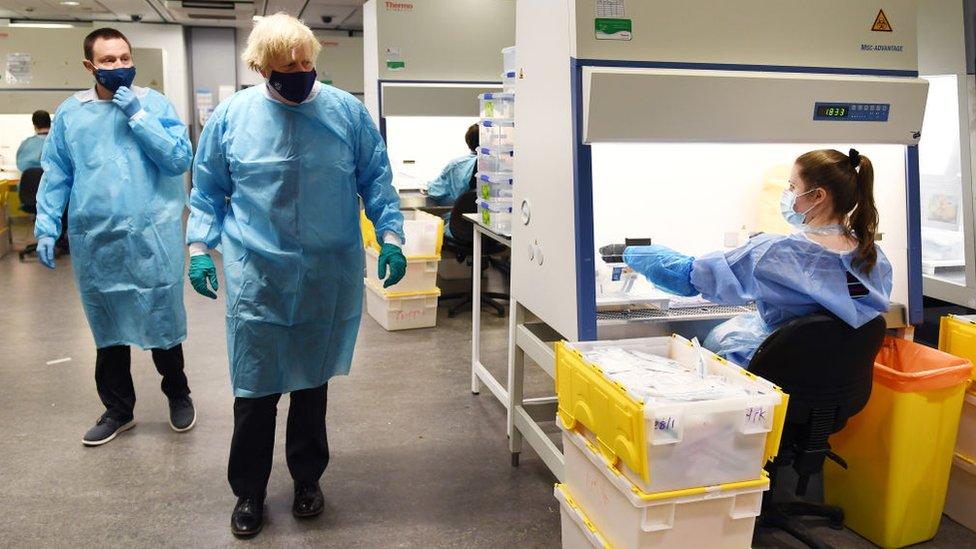
Boris Johnson also visited the Lighthouse Laboratory in Glasgow, which is used for processing PCR samples
During Prime Minister's Questions, the SNP's Westminster leader Ian Blackford said the visit was "utterly, utterly reckless" and an "absolutely shocking error of judgment".
He also accused Mr Johnson of putting "politics before public health".
Mr Blackford added: "What an absolute shambles, that he's gone to a plant where there was a Covid outbreak.
"The Daily Record story is very clear, the PM and his advisers knew there was a serious Covid outbreak at this plant, they knew the visit posed a risk but he made a deliberate choice, they made the irresponsible choice."
'Fantastic time'
Mr Johnson replied: "I think what the people of Scotland want to see is the whole country pulling together and working to develop the vaccine as that fantastic plant in Scotland is doing.
"One of the advantages of the Valneva vaccine is that it may be able to combat all sorts of variants in a very comprehensive way. It's amazing, wonderful to see Scottish scientists working to do that. I had a fantastic time.
"Nobody, by the way, raised that issue with me before or since and it is my job to visit every part of this country, nothing and no-one is going to stop me and I am very, very proud of the record of the government in rolling out the vaccine."
In a statement, Valneva said "a number of coronavirus cases were reported among staff" at the Livingston site last month.
It said staff who may have been affected had been self-isolating and that the prime minister's visit was Covid-compliant.
The Daily Record, external quoted Valneva's chief financial officer, David Lawrence, as saying that Downing Street was informed of the outbreak ahead of the trip.
Mr Johnson also visited the Lighthouse Laboratory at the Queen Elizabeth University Hospital campus in Glasgow, where coronavirus tests are processed, and met troops setting up a vaccination centre in Castlemilk.


I was not aware of Covid cases among workers at Valneva when I visited the site to interview the prime minister on behalf of UK broadcasters last week.
Boris Johnson made no reference to a Covid outbreak. Neither did anyone from his Downing Street team or from the company. It was simply not mentioned.
However, Valneva appeared to be a highly Covid conscious company on the occasion of the prime minister's visit.
I was required to fill out a form to confirm details of my health and travel history. I had to wear personal protective equipment including a lab coat, plastic shoe coverings and an industrial grade face covering. As did the PM.
Downing Street has now confirmed it had been made aware of the cases before Mr Johnson's visit.
Remarkably, it does not appear to have told the prime minister, having been advised by Valneva it had Covid-secure procedures in place.

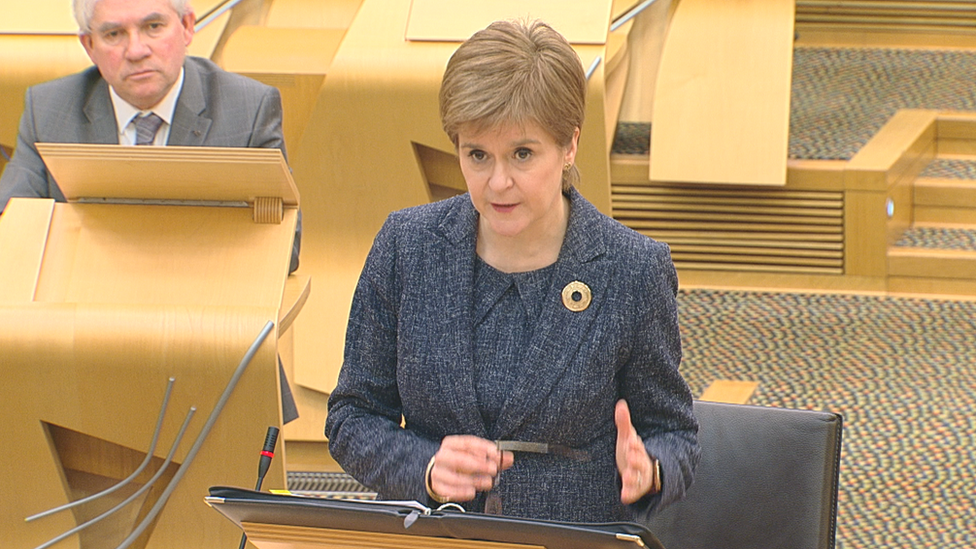
Nicola Sturgeon said Scotland had vaccinated more people on Tuesday than any other day so far
With the Scottish government facing questions about the progress of the vaccine rollout north of the border, Mr Johnson has repeated the UK government's offer to "help Scotland with the rollout of vaccines".
The British Army is to start administering the coronavirus vaccine in Scotland for the first time, with 57 personnel deploying on Thursday to help health boards with the vaccine rollout.
The medics and management staff will make up a "vaccine quick reaction force" which will see five teams of 10 able to deploy across Scotland at short notice.
They will be in addition to the 98 members of the Royal Scots Dragoon Guards who are already supporting the vaccine effort.
Scotland has been lagging behind the other three UK nations in the overall percentage of people it has vaccinated, with Scotland's health secretary and national clinical director admitting on Tuesday that it needed to speed up the rollout.
But at Holyrood, Nicola Sturgeon said more than 38,000 people had received their first dose of the vaccine on Tuesday - the highest daily total so far.
She said the Scottish government had focused on getting the most vulnerable vaccinated first, and that the programme was now accelerating.
The Scottish Conservatives' Ruth Davidson called for the Scottish government to publish daily breakdowns of vaccination figures for each health board area.
And Scottish Labour's Jackie Baillie raised concern that there was a "growing postcode lottery in vaccine rollout", which Ms Sturgeon denied.
After outlining cases brought to her attention of people not being told when they will receive their first dose, she told the first minister: "These examples aren't a one-off but they are part of a growing postcode lottery in vaccine rollout, and it's slowing Scotland's recovery from Covid-19.
"The weekly Public Health Scotland figures show a huge variation across the country in the proportion of the population receiving the vaccine."
Ms Sturgeon insisted: "People are not being penalised because of where they live.
"There will be differences in speed because of geographies, because of how different health boards are organising this to take account of the differences between urban areas and rural areas, the different sizes of communities, but all health boards are making progress."


- Published3 February 2021
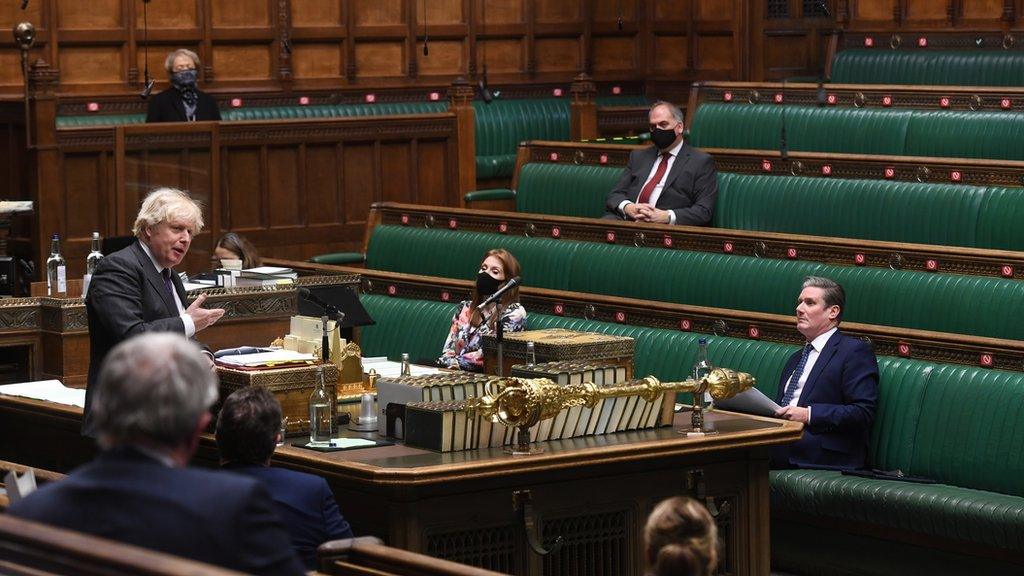
- Published3 February 2021
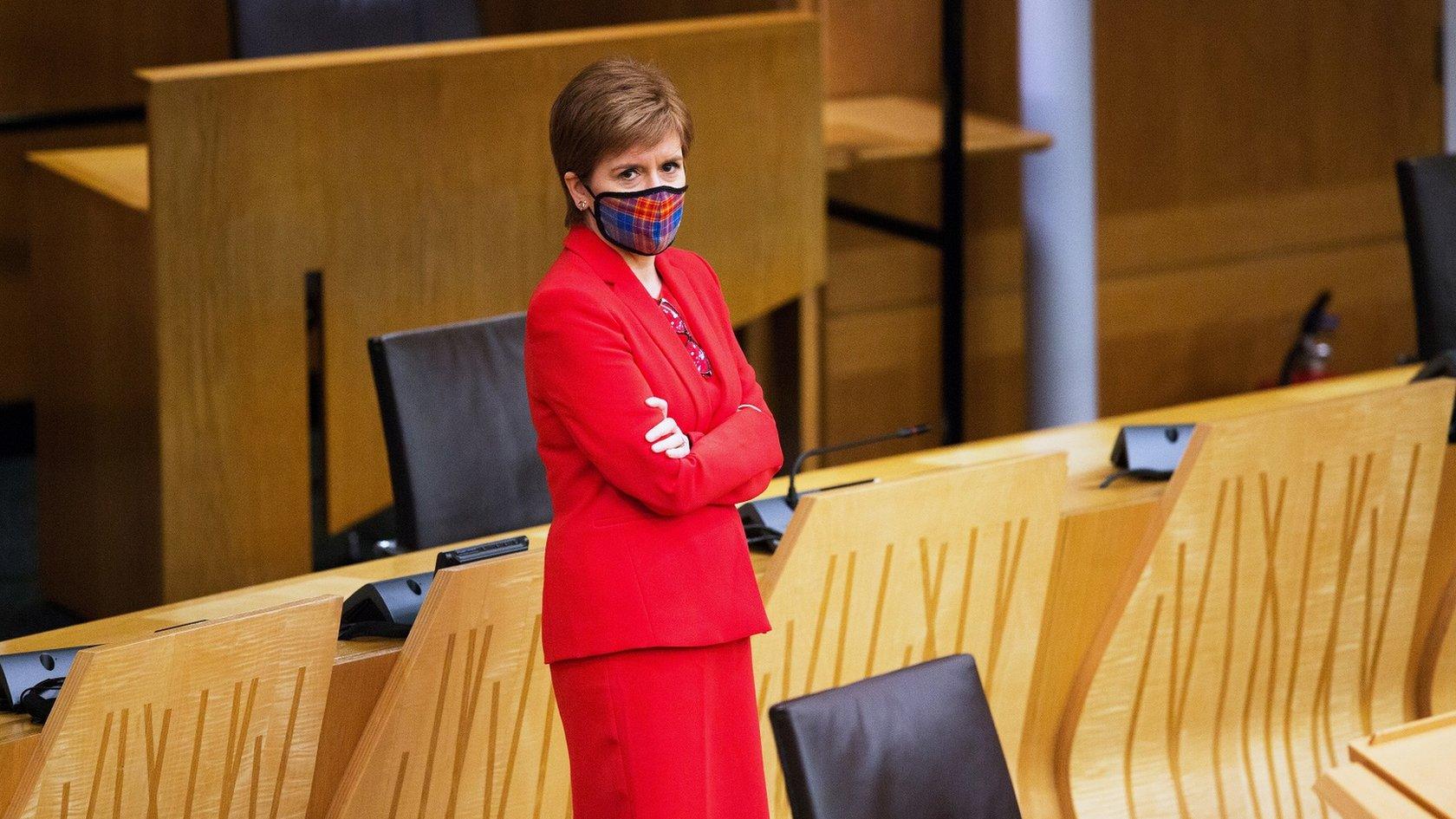
- Published28 January 2021
